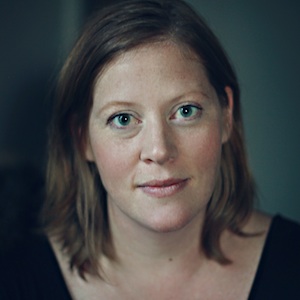“I don’t like mesas,” she confesses, while looking out the car window at some.
“No?” he says, to be polite.
“Nope,” she says, confirming to herself with a last study of the distant forms that they are the giant, sad, empty stages of the world, affirmations nothing happens up on high.

Glinting human data line the paved trade routes. He paints pictures—landscapes, she calls them—of the streets. Fried bird bones and Styrofoam, vomit and feathers, a single hoop earring.

En route to Vegas, they’re about to pass by Wickenburg, a town known for the gold flakes that still twinkle inside its shallow river. Almost nobody lives there now, but a century ago the mountains ran riot with prospectors dipping pans into the silt.
She mentions the Wickenburg gold hoping to reroute, if only for a short while, toward a wholesome form of gambling. She imagines telling their eventual children how they had once taken their riches right out of the ground and how tanned and exhausted, with sacks of monetary metal, they stopped on their way home to buy an expensive supper at a steakhouse just off the interstate.
“Let’s do it,” she says. “You, me, and the river.”
He hates the idea. “If you know about it,” he says, “it’s no secret.”
“Look,” she says, her voice gathering heat. “We’re driving to Vegas! Do you suppose anyone else has ever heard of gambling in Vegas? Think we’ll have a leg up on the dealers? In Wickenburg,” she says, “there’s not much you can lose, and at least we’ll be outside.”
“What a thing to bring up now,” he says, loosening his tie.

She asks if her date is from here, the East Valley.
“I’m from the canyon,” he says. “I grew up inside the canyon.”
“The canyon?” she asks. She camped there once with friends. She recalls the striated rocks and the hard triumph of the hike, and that anise liqueur in the tent.
“Yes.” He sips his water. “There were six people in my high school class.”
She pictures teenagers doing math in a cave, using sticks to scratch equations in the silky dirt.
“Were there computers and printers and stuff?”
“Are you asking if we had electricity? We did. And books and pens and paper. Not a lot of machines though.” He smiles at her confusion. This always happens. “Where are you from?”
It occurs to her that he has lied about the canyon thing. She has never heard anything like it. She could lie. She considers him more intently.
“The Midwest,” she says, with apology. “My life has been totally normal. Too normal. I want to know more about you.” Her eyes enlarge.
If they continued to date, she could be the sort to unveil his identity to friends like an array of pretty things obtained abroad.

This curb does not merely separate rock garden from road, private ground from municipal; it is also an artifact of contention. Denizens of the living world, past and present, encode their desires in lines of concrete. The curb is evidence. Portal. Revelation.
Toothpaste tubes, shampoo bottles, crumpled trash—each one a text worthy of study. He sees complexities within these texts that he knows most people do not see, because other people feign interest when he mentions them but they do not feign it well.

Well, there it is. There you freaking have it. Her twenty-five-year-old dumb shit little brother won the freaking state freaking lottery. Her brother, with a condo and a girlfriend and a job he seems to like, won the sixteen point two million dollar pot.
“Don’t be nasty to him,” their mother says on the phone, “he’s going to share with you. I taught you kids to share.”
This does not dim her fury. When the gift check arrives, the amount seems rude, either too much or too little to have been a kind, open gesture, depending on her changing rationale.
She has not played the lottery herself. She doesn’t like that feature, its randomness.

The standard pink underwear is not so bad. Thin, friendly material. It reminds him of college parties, thrift store clothing, the power of costume.
On his third day in prison he sees a familiar face. Someone he knows from the bars, a goofball with red cheeks and drowning eyes. Relief is cut with strange embarrassment. His time in here must not mix with his time outside, and he would like to preserve all prior distinctions between the goofball and himself.

The driver pulls into an empty convenience store lot. He stops the bus, leaving the keys, and goes inside. She is the only passenger, due in in forty five minutes, an early shift. Beyond and behind her, the concrete sea shimmers white. On the Western horizon, palm leaves fan out like cheery hair, three hundred feet away or three thousand. The flatness bewilders. The driver leans comfortably against the running bus and opens his chips. He eats them one at a time.

“We shouldn’t have come,” he says, unfolding their blanket on a patch of dry grass crowded with couples and families.
She looks at him as if he has just revealed himself to be a crying child on an airplane.
“The paper said,” she says, leveling her tone, “they said we can see it best here, better here than anyone on the planet.”
They put on their protective eyewear, which feels inane to him. He tries to behold the apparent wonder of the sky. It is a sky. He looks around. His eyes catch on two young people in shorts, friends maybe, or a couple. They take vigorous bites of beef jerky. He wishes he and his wife were as happy and attractive as the young people, and he wishes he had their beef jerky. He imagines their decision to come and view the special eclipse, stirred by the image in their phones just as his wife had gone quiet at the picture in the paper. The young people stop chewing, eyes trained on the heavens. He looks up, settling into a hopeful posture.

She is not an injured person, but she is lying in the road with her cheek against the ground. Whatever she ingested makes it sensible to remain there, not far from the Speed Limit 75 sign.
The road has never ruined her. She trusts the road.
At five she drew on the street with fat sticks of chalk. The road beneath her was open, a field. Upon it went a star. A moon. A dragon. A name in cursive, each letter trimmed with flags and tails.
At ten her bicycle met with a sedan and she connected with the road, her blood smearing and cooking into the dark mosaic. She woke to interested, loving faces. They asked her who she was, if she could talk, what she felt. The road beneath her was warm, like a treatment.
At eighteen she zigzagged the country in a small, old car. The road beneath her was steady, like a conveyor belt, and it brought her adamant signs: Virgil V. Vigil for County Sheriff; Lance Burton: Master of Hope; From Now On It Must Be Abstinence, Abstinence, and More Abstinence; You Can’t Hold Hands With God While You’re Masturbating.
At twenty-two her car hit a dog, medium-sized, with tags. The road beneath her became a fact. She would have liked to move the animal from the traffic area, but his bones had broken and his skin felt swollen to her touch.
At twenty-three she was a courier. The road beneath her grew small and familiar, like a room. In storm season, she learned to steer across fresh slicks of rain and oil, around the drifts of palm bark. In the dark, without tools, she could solve for any address.
She is not an injured person. She is lying in the road. There could come a car, or violence, or snakes. There could be a god inside the clouds, his hands gently fucking with the lighting and the weather.
For more information about this piece, see this issue's legend.

Emily Flamm’s fiction has recently appeared in
1215 E. Vista del Cerro Dr.
Tempe, AZ 85281
Four of us lived there and none had what could be called our own things, not even a bed. Illness, love, or sobriety would give you temporary claim to the collapsed blue mattress in the back, also known as the good bed.

